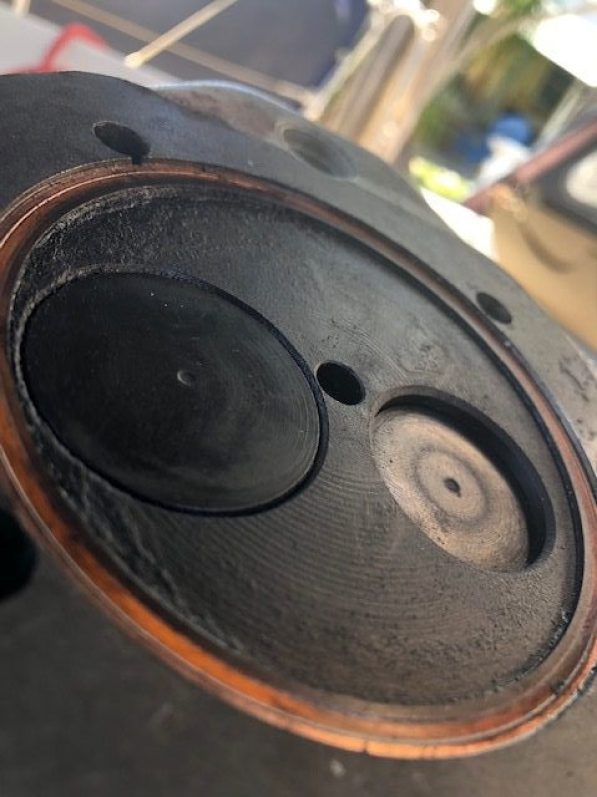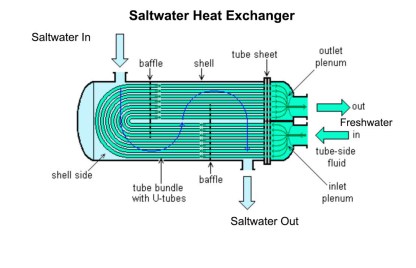So next on the list of repairs is the Fischer Panda Generator, we fitted this pretty much soon after buying the boat, as we wanted to have the facility to have 240v whilst at anchor, predominantly for charging the leisure batteries, hot water and the luxuries of land, like TV, hairdryer etc.
We had opted, admittedly whilst being “schmoozed” at a boat show for the 5KVa model with acoustic hood, to keep it quiet, just a tad over 4.5KW, plenty for our needs, as our 240v AC system was pretty much limited to 3kw anyway. This model used a Farymann single cylinder diesel engine, that had been designed in Germany back in 1945, its primary use was for air-cooled water pumps and air-cooled generators.
So bought brand new, our generator was about 6 years old and had hardly been used until we set off, it had worked fine in the UK, but once it was in demand and required down the coast of France and Spain, things started to go wrong. Sometimes it would run for hours, (150hrs, which is nothing for an engine/generator) but then the next time we needed it it wouldn’t start. In fact, although we managed to get it running for a short time in Povoa de Vazim in Portugal, it continued to play up to the point where in The Cape Verdes we had an engineer out to it again, (NB if you participate in the ARC+ or happen to call into the Cape Verdes on a yacht, be aware of the engineering services – when busy the chap that runs the show recruits virtually anyone who has seen an engine and calls them engineers, we wasted 3 days with a chap that really didn’t have a clue) Anyway the downside of this was, we didn’t have it working for the Atlantic Crossing (thank God I bought the little Honda EU20 along as back-up)
Once in St Lucia a charming chap called John from S/V Jack narrowed it down to a problem with compression, he suggested we checked the tappets as he suspected the exhaust valve was staying open, we reset the clearances and hey presto off we went, then a couple of days later the same again wouldn’t start, so we adjusted the tappets, we ended up doing this 3-4 times to the point where we couldn’t adjust them anymore, the gap was getting smaller?
Now at this stage, I could drone on about the basics of a single cylinder diesel engine, but I won’t, you really will start losing the will to live. Fischer Panda and many others had “Marinised” land-built engines (modified it for use in a marine environment with salt water cooling) and alas that’s where the trouble with the Farymann engine and ours and probably many others began. According to many blogs and posts on various boaty websites on the subject of these generators, it appeared that quite a few installations of these engines had suffered the same if not a similar fate as ours, which I shall now try and explain.
Like most marine engines on boats, most start off life as a land designed engine, which then has a heat exchanger, bolted on the side.
The engine has the conventional cooling water circuit, but instead of it having a radiator, it has a heat exchanger. The primary cooling circuit has a pump and reservoir and the water flows through the primary circuit of the heat exchanger and back to the engine. The secondary circuit cooling comes from saltwater drawn up through an inlet around the heat exchanger and then is injected into the exhaust at a high level to contribute to cooling the exhaust.
The issue here appears to be the location of where the saltwater mixes with the exhaust When the engine stops, saltwater still enters the exhaust up until the last minute when the engine stops turning, this then collects on the underside of a now very hot exhaust valve and drys on it.
Now apart from hurricanes, tornados and lightning, saltwater is the sailors worst enemy when it comes to living aboard a boat. Saltwater if not watched will eat anything and everything, in particular metal and in this case engine steel (that’s why we fit 316 stainless steel wherever we can) and it appears that with this engine the saltwater eats not only the exhaust valve but actually the seat itself, causing the valve to sink further into the seat.


The long and short of this is we needed a new head, so not far short of $1500 later we had a new head, which came with new valves rockers and gaskets, all fitted, new oil and a 20hr run in, we now have a fully working generator, Later that day we found a great little company that specialises in cylinder heads called ironically Cylinder Head Replacement Co – they are going to fit a new seat into the old valve port and once Jamie from Fischer Panda US has new exhaust valves we’re going to build a complete spare head. You truly can find anything and I mean anything you need for your boat in Fort Lauderdale if you’re prepared to hunt around for it. And it’s great to be using such a skilled traditional machine shop – with our 21st-century passion for replacing rather than mending they need all the support they can get.
So in Conclusion.
This is an obvious failure on the part of Fischer Panda Design, the number of hours on the clock is a ridiculously short time for this kind of failure, that said, its difficult to say whether the prolonged sporadic use contributed to this failure, maybe the 4 times a seasons use, over this amount of years, maybe the salt water just literally ate away the exhaust valve, I didn’t have any redress as I was well out of warranty. It will certainly get a lot more use over the coming years, so we will see. Fischer Panda has since stopped using the Farymann engine now, because of it not meeting emission requirements both here in the US and in the UK, they’ve moved onto a Kubota Twin Cylinder now. Maybe contributed by Fischer Panda dropping the engine, but Farymann has gone out of Business now, hence us having the spare head, Fischer Panda USA still have a few spares and will have stock for a little while yet. Fischer Panda UK is in the same situation.
The little Faryman Engine is a great little invention, its so simple it just works, as for Fischer Panda when I spoke to Chris Baker in the UK he hadn’t seen this issue before and Jamie and Mike in Fischer Panda USA had only ever heard of it once before, so maybe just a chain of events or we were unlucky. All the same, we’re certainly going to keep an eye on our little monster.





